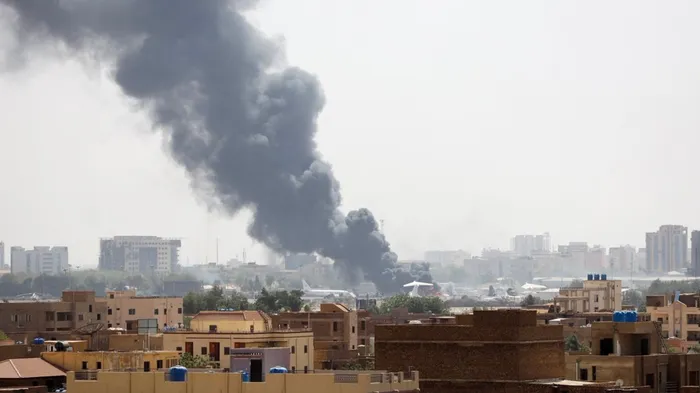Darfur's desperate plight: Civilians caught in Sudan's ongoing conflict

Sudan's Darfur crisis: Urgent need for international intervention.
Image: File
Fighting in Sudan's Darfur region persists as the paramilitary Rapid Support Forces (RSF) clash with the Sudanese Armed Forces (SAF), more than two years after civil war erupted in April 2023.
Médecins Sans Frontières (MSF), also known as Doctors Without Borders, continues to provide vital humanitarian medical care despite the dire conditions.
The organisation urgently calls on the international community to intervene and help resolve the ongoing conflict.
In April, RSF fighters launched a brutal offensive on the Zamzam and Abu Shouk displacement camps. Hundreds of civilians were killed, aid workers were abducted, and large sections of camp infrastructure were destroyed.
The assault forced an estimated 400,000 people to flee, further compounding an already dire humanitarian crisis.
"MSF is operating in extremely challenging conditions in Darfur, and the health situation in many areas is described as catastrophic and rapidly deteriorating," Dr Ali Almohammed, the emergency health manager at MSF, told IOL.
"The organisation continues to deliver emergency, maternal, pediatric, and nutritional care, despite insecurity, damaged infrastructure, and limited access. The humanitarian presence is minimal, with few NGOs and limited UN agency involvement, leaving vast areas without even basic medical services."
Almohammed added that doctors and MSF staff work under severe constraints: insecurity due to ongoing conflict and violence, demolished or abandoned health facilities, lack of medical supplies and staff, obstructed or impassable roads, especially during the rainy season, limited presence of humanitarian or medical organisations, and direct attacks on healthcare workers and infrastructure.
Sexual violence is also described as widespread and systematic in the area.
"MSF treated 659 survivors in South Darfur between January 2024 and March 2025. 56% of survivors were assaulted by non-civilians (armed actors), survivors report being raped while farming or fleeing violence, and many victims are children and adolescents. This indicates that sexual violence is being used deliberately to terrorise and control communities," said Almohammed.
Women and children face the brunt of the crisis: many women are widowed, famished, and afraid to leave the camps, while children are traumatised, malnourished, and lack access to school and healthcare.
Families are also surviving on one meal a day or less, yet communities remain resilient, with neighbours sharing food and youth clearing rubble.
IOL News
Get your news on the go, click here to join the IOL News WhatsApp channel.
Related Topics: